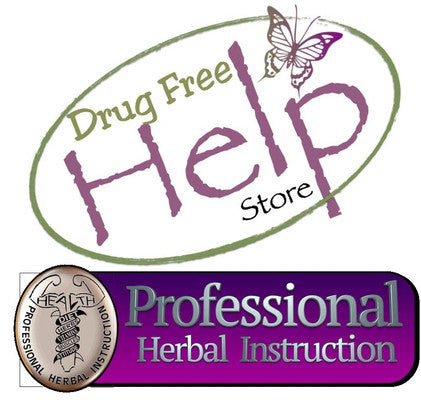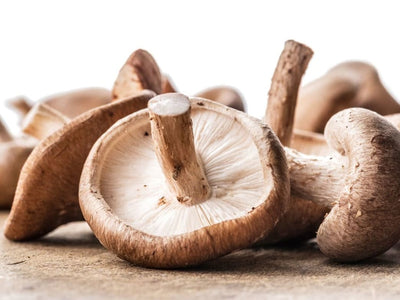How to Reduce Histamine with Diet and Supplements
Posted by LAc on

Almost all “allergies” present their annoying symptoms through the body’s immune-stimulating histamine. Histamine resides mostly in the basophils and mast cells (types of white blood cells) but also works in the stomach to help release gastric acid. It’s an important neurotransmitter for sleep/wake cycles, and it plays a role in both memory and appetite.
Of course, most of us only know histamine as the inflammatory agent that causes seasonal allergy symptoms. While these histamine-driven responses are intended to protect the body against irritants, a constantly running nose and irritated eyes can put a damper on the day, which is why antihistamines have become so popular despite their troublesome side effects.
Managing Histamine
Histamine levels in the body can become elevated for a variety of reasons:
- Increased production occurs when we are chronically exposed to irritants.
- Increased exposure is inevitable when we have a high-histamine diet.
- We may not have enough diamine oxidase (DAO), the enzyme that deactivates histamine after it has done its job. Genetics, GI issues such as leaky gut, and some medications can all cause low DAO.
How can you determine if you have a histamine problem? If something in this article rings a bell, consider completely eliminating high-histamine foods from your diet for at least 30 days. Three months is better.
Common high-histamine foods to be avoided include:
- Fermented alcoholic beverages, especially wine, champagne and beer
- Fermented foods (soy sauce, sauerkraut, kefir, yogurt, kombucha)
- Vinegar-containing foods (pickles, mayonnaise, olives)
- Cured meats (bacon, salami, pepperoni, hot dogs)
- Soured foods (sour cream, sour milk, buttermilk, soured bread)
- Dried fruit (apricots, prunes, dates, figs, raisins)
- Most citrus fruits
- Aged cheese, including goat cheese
- Nuts (walnuts, cashews)
- Some vegetables (avocados, eggplant, spinach, and tomatoes)
- Smoked fish and certain species of fish (mackerel, mahi-mahi, tuna, anchovies, sardines)
The following foods not only contain histamine, but may induce the release of our own histamine from the mast cells and basophils:
- Alcohol
- Bananas
- Chocolate
- Cow’s milk
- Nuts
- Papaya
- Pineapple
- Shellfish
- Strawberries
- Tomatoes
- Wheat germ
- Many artificial preservatives and dyes
And then there are some foods that block the DAO enzyme:
- Alcohol
- Energy drinks
- Black tea
- Mate tea
- Green tea
You might be thinking that this doesn’t leave you with much to eat, but freshness is key when you have histamine intolerance. Fresh-caught fish or meat that is degutted and either frozen or cooked immediately is fine. Fish or meat that has been sitting around in a package will likely exacerbate histamine intolerance. In addition, try these low-histamine foods:
- Eggs
- Gluten-free grains such as rice and quinoa
- Pure peanut butter
- Fresh fruits (mango, pear, watermelon, apple, kiwi, cantaloupe, grapes)
- All fresh vegetables except tomatoes, spinach, avocado, and eggplant
- Dairy substitutes (coconut milk, rice milk, hemp milk, almond milk)
- Cooking oils (olive oil, coconut oil)
- Leafy herbs such as parsley, cilantro, oregano, dill, and thyme
- Herbal teas
Natural Ways to Treat Allergies
In addition to trying a low-histamine diet for a few months, avoiding irritants is the key to calming allergy symptoms—unfortunately, that’s easier said than done, unless you want to wear a mask all the time!
1. Keep Your Home Clean
Try to keep your home clean, especially the bedroom. Avoid synthetic bedding and sleepwear, which create electromagnetic static, attracting particulate matter that will inevitably drift up your nose or down your throat. A high-quality air filtration system—especially in the bedroom—is also a good investment.
2. Take Enzymes
There are DAO supplements on the market, as well as excellent combo products that contain enzymes to break down protein, fats, sugars, and fiber. Enzymes taken with food, at the beginning of a meal, can help your body digest and assimilate the nutrients. Enzymes taken on an empty stomach are my favorite anti-inflammatory supplement, because they have virtually zero side effects. The “debris” of your body reacting to an irritant, as well as the irritant itself, are readily broken down and readied for elimination with the help of enzymes.

And remember: enzymes aren’t just to help you digest your food. Your entire immune system works enzymatically. The burden of plastic and packaged food in the modern world has taken a toll on our ability to produce adequate enzymes for optimal health and digestion. So enzymes are universally helpful, and it’s hard to go wrong with a product that contains the basic groups of enzymes: protease, or proteolytic enzymes (to digest protein), lipase (to digest fats), amylase (to digest starches), cellulase (to digest cellulose, a prevalent food fiber), and phytase (to digest phytic acid, the hard-to-digest part of legumes and grains).
Healthy Tip!
Take enzyme supplements between meals to reduce inflammation and help your body get rid of allergy-inducing irritants.
3. Keep Nasal Passages Clear
For keeping the nasal passages free of irritants, neti pots can be helpful—but they work better preventively than acutely. Once your nasal passages are stuffed up, I prefer steam inhalation. Just put a few drops of essential oils and half a cup of hot water in a bowl. Place the bowl at a table where you can sit comfortably, draping a big towel over your head, shoulders, and the bowl. Close your eyes and breathe deeply for several minutes while the aromatic steam rises. Peppermint, eucalyptus, thyme, and oregano are all good choices for this method of decongestion. Frankincense (boswellia) is also a fantastic and fragrant medicinal plant that has been used since antiquity as a decongestant, anti-inflammatory, and antiseptic.
4. Use Supplements
Supplements to help your body with histamine balance, as well as soothing your mucous membranes, include vitamin C and bioflavonoids. Make sure your vitamin C product is sugar-free and buffered (usually with calcium and magnesium, to bring the pH to 7, which allows for absorption). Quercetin and turmeric are my favorite food-based bioflavonoids.
Written by LAc for Better Nutrition and legally licensed through the Matcha publisher network. Please direct all licensing questions to legal@getmatcha.com.


